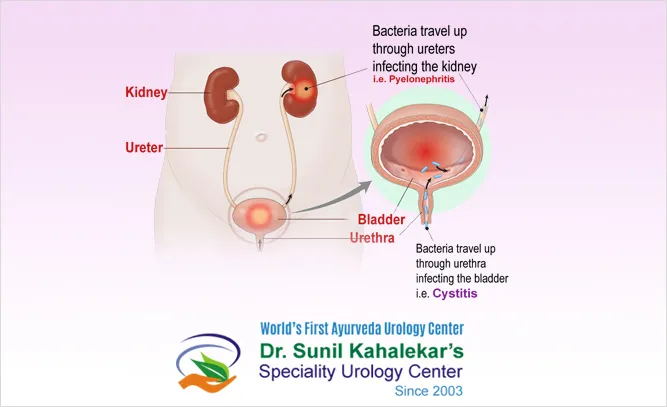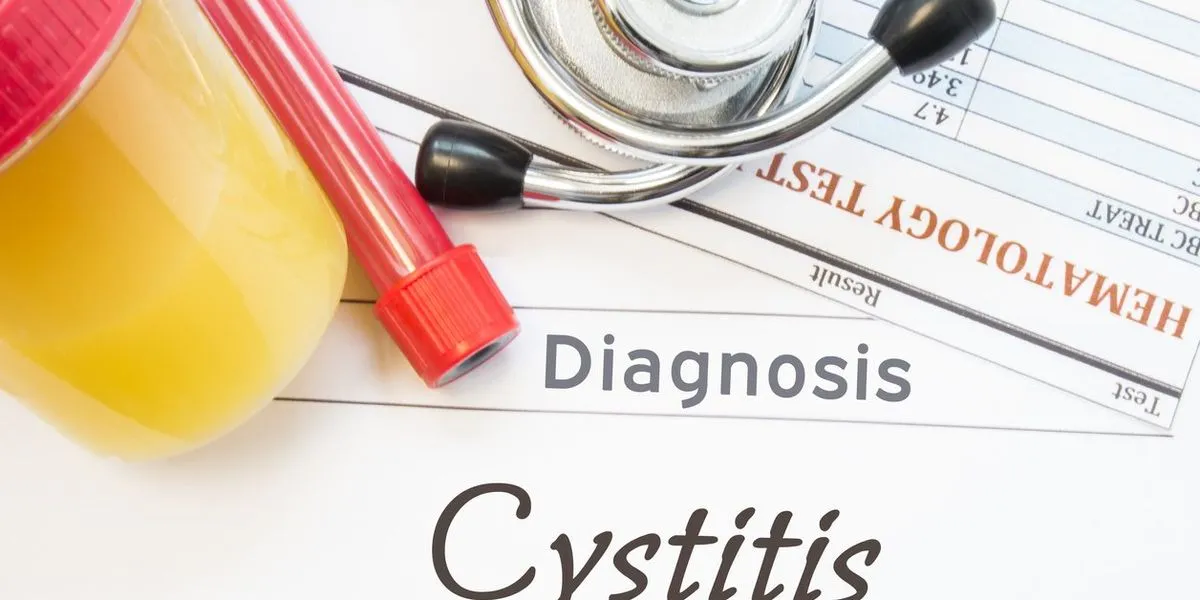Honeymoon cystitis, a type of urinary tract infection (UTI), is a common ailment that can put a damper on the joy of a newlywed couple. It’s often triggered by sexual activity, earning it its descriptive name. Understanding the causes, symptoms, and most importantly, the preventative measures, is essential for enjoying a healthy and happy start to married life. This article delves into the intricacies of honeymoon cystitis, offering practical advice to help you navigate this condition and maintain your well-being. Let’s explore the causes and what you can do to prevent it from occurring.
What is Honeymoon Cystitis
Honeymoon cystitis is essentially a UTI that occurs or flares up shortly after the beginning of sexual activity in a marriage. This is primarily due to the increased likelihood of bacteria entering the urethra during intercourse. While UTIs are common in all demographics, the increased frequency in newly married couples or during periods of increased sexual activity has earned it this specific term. It’s crucial to distinguish this from other UTIs, as the primary cause, and therefore the most effective prevention strategies, are often linked to sexual activity. Early detection and treatment are essential to prevent the infection from spreading to the kidneys, which can lead to more serious health complications. It’s important to note that any woman can get a UTI, and it has nothing to do with cleanliness.
Causes of Honeymoon Cystitis
Several factors contribute to the development of honeymoon cystitis. Understanding these causes can help you adopt preventive strategies. The most common are the following.
Sexual Activity

Sexual activity is the most significant contributing factor. During intercourse, bacteria can be pushed into the urethra, the tube that carries urine from the bladder out of the body. This is particularly true if the individual is not properly lubricated or if there is friction during sex, creating an environment where bacteria can thrive. The frequency of sexual activity, particularly in the early days of a marriage, can increase the risk as well, providing more opportunities for bacteria to enter the urinary tract. Also, using certain sex positions may put pressure on the bladder, increasing the risk.
Poor Hygiene
Inadequate hygiene practices can also increase the risk. Not properly cleaning the genital area before or after sex can introduce bacteria. Wiping from back to front after using the toilet can transfer bacteria from the anus to the urethra. Similarly, failing to wash hands before touching the genitals can also lead to bacterial transfer. Maintaining good hygiene is critical to minimizing the risk of introducing bacteria into the urinary tract. Taking the time to practice proper hygiene can make all the difference in preventing this condition.
Dehydration
Dehydration concentrates urine, making it a more hospitable environment for bacteria to grow. When you’re adequately hydrated, you urinate more frequently, which helps flush out bacteria from the urinary tract. Insufficient fluid intake reduces the frequency of urination, allowing bacteria to multiply and potentially cause an infection. Ensuring sufficient fluid intake, especially water, is therefore a vital component of preventing honeymoon cystitis. Drinking plenty of water throughout the day will not only help to prevent UTIs, but it will also help your overall health.
Irritation

Irritation from sexual activity, such as friction or inadequate lubrication, can make the urethral opening more susceptible to bacterial entry. The use of harsh soaps, douches, or other products in the genital area can also cause irritation and disrupt the natural balance of bacteria, increasing the risk of infection. Inadequate lubrication during sex can lead to micro-tears in the vaginal or urethral tissues, providing an entry point for bacteria. Avoiding irritants and using adequate lubrication are therefore essential preventive measures.
Symptoms of Honeymoon Cystitis
Recognizing the symptoms of honeymoon cystitis is essential for prompt treatment and to prevent the infection from worsening. Here are the most common signs of this condition.
Frequent Urination
One of the most common symptoms is a frequent and urgent need to urinate, even when the bladder is not full. This sensation can be very uncomfortable and disrupt daily activities. You might feel like you constantly need to use the restroom, and each time you do, only a small amount of urine is produced. This symptom is caused by the inflammation and irritation of the bladder lining, which sends signals to the brain that the bladder is full. The constant urge can be distressing and interfere with your daily life.
Burning Sensation

A burning sensation during urination is another hallmark symptom. This discomfort is caused by the inflammation of the urethra as urine passes through the infected area. The pain can range from mild to severe, making urination a very unpleasant experience. Many describe it as a sharp, stinging pain that can last throughout the urination process. If you experience a burning sensation when urinating, it’s important to seek medical attention promptly to avoid the condition from worsening.
Cloudy or Bloody Urine
Changes in the appearance of urine can also indicate a UTI. Cloudy urine suggests the presence of bacteria and white blood cells in the urine. Blood in the urine (hematuria) is a sign of more advanced inflammation or potential damage to the urinary tract lining. If you notice either of these changes, it is important to consult a doctor. Bloody urine can be a sign of a more serious infection, so prompt medical attention is essential. A healthcare professional can properly diagnose the cause and provide you with the appropriate treatment plan.
Pelvic Pain
Some individuals may experience pain or pressure in the lower abdomen or pelvic area. This pain can range from mild discomfort to more severe cramping. It is caused by the inflammation and irritation of the bladder and surrounding tissues. Pelvic pain can be a sign of more severe inflammation, and it can also be an indication that the infection has spread. If you experience pelvic pain, it’s important to consult a doctor. They can determine the cause and provide the necessary treatment.
How to Prevent Honeymoon Cystitis

Preventing honeymoon cystitis involves a combination of lifestyle changes and mindful habits. Here are some effective strategies.
Proper Hygiene
Maintaining good hygiene before and after sexual activity is crucial. This involves cleaning the genital area with gentle, unscented soap and water. Wiping from front to back after using the toilet prevents the spread of bacteria from the anus to the urethra. Also, avoid using douches or other products that can disrupt the natural balance of bacteria in the vagina. These practices help minimize the risk of bacteria entering the urinary tract.
Hydration
Drinking plenty of fluids, especially water, is essential for flushing bacteria out of the urinary tract. Aim to drink at least eight glasses of water a day. Frequent urination helps to cleanse the urinary system, reducing the risk of infection. Keeping the body hydrated will reduce the concentration of urine, making it less conducive to bacterial growth. Drinking water is one of the best ways to maintain a healthy urinary tract.
Urinate After Sex

Urinating shortly after sexual intercourse is a simple but effective way to prevent UTIs. This helps flush out any bacteria that may have entered the urethra during sex. Make it a habit to urinate after each sexual encounter. This simple step can significantly reduce your risk. It’s one of the most important things you can do to prevent honeymoon cystitis. This helps to prevent bacteria from multiplying and causing an infection.
Choosing Lubricants
Using lubricants during sexual activity can minimize friction and reduce the risk of irritation and micro-tears, which can make the urinary tract more vulnerable to infection. Choose water-based lubricants, as oil-based lubricants can trap bacteria. Ensure that the lubricant is hypoallergenic and free from irritants. Using the correct lubricant will provide comfort and reduce the chance of a UTI. The choice of lubricant can have a direct effect on your health.
When to See a Doctor
If you suspect you have honeymoon cystitis, or if you experience any symptoms of a UTI, it’s important to consult a doctor. They can diagnose the infection and prescribe appropriate treatment, which typically involves antibiotics. Early treatment can prevent the infection from spreading to your kidneys and causing more serious health problems. If symptoms persist or worsen despite home remedies, seek medical advice. It’s better to seek professional help sooner rather than later to get the proper treatment and relief.
Honeymoon cystitis is a common condition that can be effectively prevented with the right information and strategies. By understanding the causes, recognizing the symptoms, and following preventive measures like proper hygiene, staying hydrated, and urinating after sex, you can significantly reduce your risk. If you experience any symptoms of a UTI, don’t hesitate to seek medical advice. Prioritizing your health ensures a happy and healthy start to your married life.
